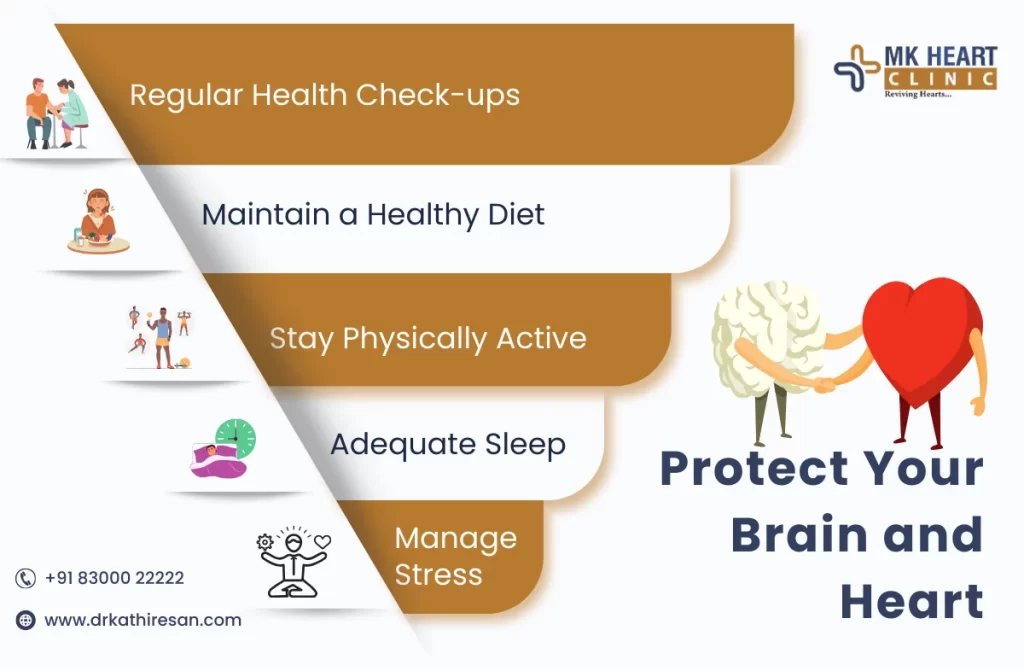Chronic stress, depression and heart disease are the most common and challenging health conditions people face today. Depression and heart disease are often interrelated and can profoundly impact a person’s physical and mental health. This post will explore the connection between these three conditions and the importance of early diagnosis and treatment.
Chronic Stress
Chronic stress is a state of prolonged mental and emotional stress that can result from various life events, including work-related stress, financial worries, relationship issues, and health problems. Chronic stress can have a negative impact on the body, leading to physical and psychological health problems, including heart disease.
Depression
Depression is a mental health condition characterized by persistent feelings of sadness, hopelessness, and low self-esteem. Depression can be caused by a combination of genetic, environmental, and psychological factors and can impact the body in various ways. In addition to causing physical symptoms, depression can also increase the risk of heart disease.

Link between Chronic Stress, Depression and Heart Disease
The connection between chronic stress, depression and heart disease is complex and multi-faceted. Chronic stress and depression both affect the body in various ways, leading to an increased risk of heart disease.
Chronic stress triggers the release of stress hormones, such as cortisol, which can cause inflammation, increase blood pressure, and disrupt the functioning of the heart. Depression and heart disease, on the other hand, has been linked to unhealthy lifestyle choices, such as lack of exercise, smoking, and poor diet, which can contribute to the development of heart disease.
Impact of Chronic Stress, Depression and Heart Disease
The impact of chronic stress, depression, and heart disease on overall health and well-being cannot be overstated. These conditions can profoundly impact a person’s physical and mental health, leading to a reduced quality of life and increased risk of future health problems. In some cases, the impact of these conditions can be so severe that they can lead to disability or even death.
Treatment and Management
Treatment and management of chronic stress, depression and heart disease are crucial for reducing the risk of further health problems and improving overall health and well-being. Therapy, exercise, and healthy lifestyle choices can play an important role in managing these conditions.
Additionally, seeking treatment and support from a healthcare professional like the best cardiologists in Chennai Dr. M. Kathiresan working at MK Heart Clinic can help to reduce the risk of heart disease and improve the quality of life for those affected by chronic stress, depression, and heart disease.
Signs of Depression: Recognizing the Connection with Heart Disease
- Persistent Sadness: Feeling consistently sad, hopeless, or having a general sense of emptiness.
- Loss of Interest: Losing interest or pleasure in once enjoyable activities.
- Fatigue: Experiencing unexplained fatigue or a lack of energy.
- Changes in Sleep: Disturbed sleep patterns, including insomnia or oversleeping.
- Appetite Changes: Significant changes in appetite, leading to weight loss or gain.
- Difficulty Concentrating: Struggling with focus, memory, or decision-making.
- Physical Symptoms: Experiencing unexplained aches, pains, or digestive issues.
- Suicidal Thoughts: Thoughts of self-harm or suicide, which require immediate professional help.
- Connection with Heart Disease: Depression and heart disease often share a bidirectional relationship. Depression can contribute to heart disease, and heart disease can exacerbate depressive symptoms.
It’s essential to address both conditions for comprehensive well-being. Seek professional help if you recognize these signs or if you have a history of heart disease.
How Depression and Heart Disease Relate to Each Other
- Stress Hormones – Depression raises stress hormones, leading to increased blood pressure and heart disease risk.
- Lifestyle Impact – Depression often leads to poor lifestyle choices such as smoking, inactivity, and unhealthy eating, further increasing heart disease risks.
- Chronic Inflammation – Depression triggers inflammation, a key factor in heart disease development.
- Poor Heart Health Worsens Mood – Heart disease symptoms like fatigue can worsen depression.
The link between depression and heart disease is crucial, which is why seeking the best cardiologists in Chennai for holistic care is vital.
Effect of a Positive Mental State on Heart Disease
- Lower Stress Levels – A positive mindset helps reduce stress, a known trigger for heart disease.
- Improved Heart Function – Positivity has been linked to lower blood pressure and healthier heart rates.
- Healthier Choices – Positive mental health encourages a more active lifestyle and healthier eating habits.
- Stronger Immune System – A good mood boosts the immune system, aiding in heart disease prevention.
Maintaining a positive attitude can counteract the effects of depression and heart disease. The best cardiologists in Chennai recommend mental well-being as part of heart care.
Treating Depression
- Therapy – Cognitive Behavioral Therapy (CBT) is effective in treating depression and its impact on heart health.
- Medications – Antidepressants may help, but heart health should be monitored.
- Physical Activity – Regular exercise improves both mental health and heart function.
- Social Support – Connecting with family and friends helps in reducing depression symptoms.
Treating depression and heart disease simultaneously is essential for overall well-being. Consulting the best cardiologists in Chennai ensures both physical and mental health are addressed effectively.
Conclusion
Chronic stress, depression, and heart disease are complex and challenging health conditions that can profoundly impact a person’s physical and mental health. Understanding the connection between these conditions is crucial for reducing the risk of further health problems and improving overall health and well-being. By seeking treatment and support from the best cardiologists in Chennai from Dr. M. Kathiresan who can make your life healthy, can reduce the risk of heart disease, and improve the quality of your life.
Read also: Angioplasty treatment in Chennai

